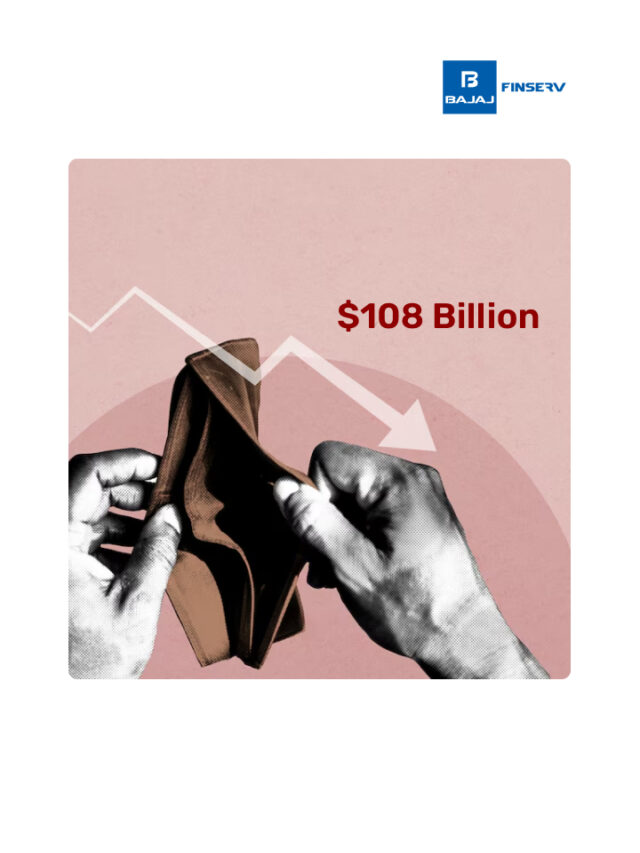Lakshadweep vs Maldives: Explained
Last Updated on January 16, 2024 by BFSLTeam BFSLTeam

The recent Lakshadweep vs Maldives feud has really flared up. #Boycott Maldives has been trending on most social media platforms. A simple photographic promotion of the Indian islands by our Prime Minister led to an unwarranted slew of statements by three Maldivian government representatives. This, in turn, led to a series of contra-posts and trolling from the Indian diaspora, fueled by patriotic sentiments and a resentment towards the derogatory comments made, that may have eventually blown this controversy way out of proportion.
If you’ve been getting bombarded with mentions of Lakshadweep and Maldives on your feeds but are not really sure what it is all about, then this article is for you. Briefly, and simply, we will give you the context, background, current situation, and possible impact of this ongoing
Table of Content [hide]
Background
Earlier this year, Prime Minister Narendra Modi visited the Lakshadweep islands and posted a pic on his social handle with a caption that encouraged people to add the islands to their travel itinerary. This promotion was in line with the Indian government’s attempts to boost local tourism and encourage foreigners to visit Indian destinations. Naturally, it is a boost to the local economy while also increasing our country’s goodwill and cultural presence globally.
However, few Maldivian government office holders, three to be precise, in the Ministry of Youth Affairs in Maldives seem to have misconstrued the intent. One of them, Maryam Shiuna took to the social platform X (formerly Twitter) with derogatory and alleged racist remarks against India, our Prime Minister, and our tourism infrastructure. The two others – Malsha Shareef and Mahzoom Majid – chimed in as well, suggesting that the PM is aiming to pose a challenge to Maldives’ tourist industry which is a big contributor to the country’s overall GDP.
The Maldives Situation Explained
India and Maldives have shared a deep and intricate bond for centuries, woven from cultural and geographical proximity. Historically, Indian traders found fertile ground in the Maldivian archipelago, leaving lasting impressions on language, cuisine, and even traditional building styles.
Until recently, this positive trajectory continued, marked by high-level visits, vibrant trade exchanges, and cultural collaborations. Notably, the inauguration of the Maafushi Airport in 2019, built with Indian aid, symbolised the enduring partnership in boosting Maldivian tourism. This strong foundation paved the way for future cooperation in diverse areas, promising further growth and prosperity for both nations.
However, the coming to power of the recent Maldivian President Mohamed Muizzu has created some strain in the relationship. He made headlines by requesting India to reduce its military presence in the Maldives. India asserted that the military presence is primarily for providing medical support to the distant islands. Muizzu later discussed this matter with PM Modi during the climate summit in Dubai on December 1.
Many political experts were wary of President Muizzu’s inclination towards China. As the other powerhouse in Asia and specifically the Indian Ocean Region, concerns were bound to be raised, especially since the Maldivian President is about to embark on an official trip to China.
The Aftermath
Active Indian social media users took immediate offence to the statements made by the three Maldivian deputy ministers, in particular, and immediately called for a boycott of Indian tourism to these islands. #BoycottMaldives started trending almost instantly with several media personalities and celebrities using the hashtag to make their feelings known. Several Bollywood celebrities too questioned the tone and spirit of the comments and called the racist undercurrents in the statements and social media posts of some of the Maldivian officials. Several Indians with existing bookings took to social media and claimed to have cancelled their vacation plans to the country. Holiday and travel booking platforms like EaseMyTrip – one of India’s largest – have suspended bookings to the archipelago indefinitely.
The Confederation of All India Traders (CAIT) has also called for a temporary halt to trading and other business ties with the Maldives as a mark of protest to the objectionable comments made against India and Indians. The Maldivian government quickly distanced itself from the controversial statements, though, and suspended the three deputy ministers who were seen as the instigators of this controversy. The Indian government summoned the Maldivian envoy while the Indian High Commissioner to the Maldives also engaged in closed-door meetings with the Maldivian foreign ministry to clarify and resolve the matter. The Maldivian government released an official statement claiming that the opinions shared by the handful of citizens were their own and did not represent the views of the country’s government or the general public.
The Impact
Let us consider the impact of this controversy on both the Maldives and Lakshadweep.
The Maldives
As per a World Bank report, tourism accounts for almost 30% of the Maldives’ GDP. Indian tourists make up the largest share of visitors with over 2 Lakh Indians travelling to the Maldives in 2023, (almost 12.4% of the total arrivals in the country) as per data released by the Maldivian Tourism Ministry. This is followed by Russia and China.
Naturally, if such a large number of tourists stick to their plan of refusing to travel to the islands, it can cause a major loss to the nation’s economy. Furthermore, if the CAIT’s call for suspension of trading with the country takes shape, it can lead to further economic and business loss. Hospitality and trade are both likely to take a big hit for a nation that has a very low GDP Purchasing power parity (PPP) rank of 162 in the world.
Lakshadweep
On the other hand, Lakshadweep stands to gain a lot. While Indian social media users have trended the #Boycott Maldives hashtag another one doing the rounds is #ExploreIndianIslands. Celebrities and platforms like EaseMyTrip are circulating this hashtag to draw attention to Indian tourist spots as an alternative to the Maldivian ones. Not only is this likely to boost the economy it can also contribute to more developed infrastructure and connectivity in the region.
Having said that, development often comes at a cost – whether tangible or perceived. There have been some growing concerns among the local population that creating Lakshadweep as a tourist haven (and associated construction) may cause ecological imbalances. Some others have voiced concerns regarding the growing influence of New Delhi in the local governance of the Union Territory.
What Does the Future Hold?
Maldives holds a crucial position as India’s neighbour in the Indian Ocean Region (IOR), playing a special role in initiatives like ‘SAGAR’ (Security and Growth for All in the Region). It’s a key focus for India’s ‘Neighbourhood First Policy.’ Moreover, the ties between the two have been mostly cordial that extend beyond mere tourism. When it comes to defence, India has always been one of the first responders to their needs of equipment, arms, infrastructure, and training, including the signing of the Action Plan for Defence in April 2016.
On the medical and humanitarian front, India supplied almost 30K doses of vaccine to prevent a measles outbreak in the country in early 2020 followed by regular assistance and cooperation during the recent pandemic. Financially, too, India provided an aid of $100 million (without conditions) to the country to manage its prevalent economic turmoil in 2020.
Clearly, a country like the Maldives, with close historical ties with India and a high degree of dependency on our country in the areas of tourism, defence, education, and healthcare, is unlikely to let this situation go out of hand. While the term of the new President has certainly shown less favour towards India and a slightly higher leaning towards China (as assumed by his upcoming state trip to the country), it is clear that the Maldives has a lot more to lose if they do not curtail the ongoing controversy and keep more friendly terms with India.
Disclaimer: Investments in the securities market are subject to market risk, read all related documents carefully before investing.
This content is for educational purposes only. Securities quoted are exemplary and not recommendatory. *For Detailed Disclaimers Click Here: https://bit.ly/3Tcsfuc











